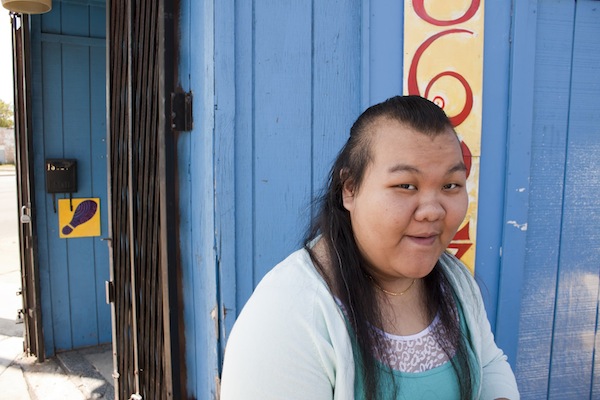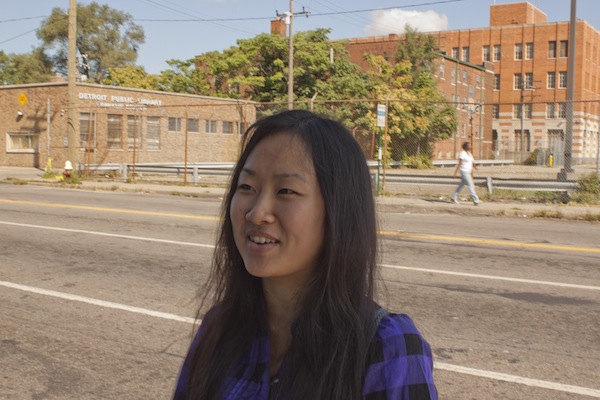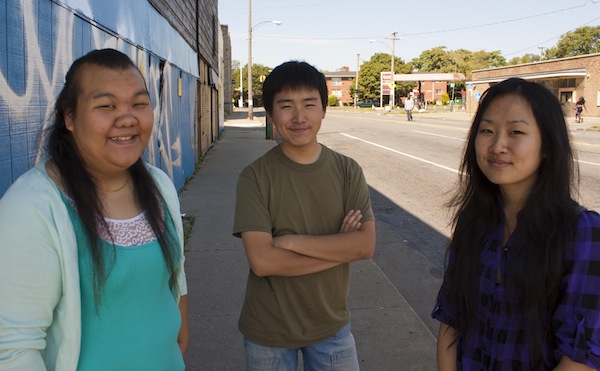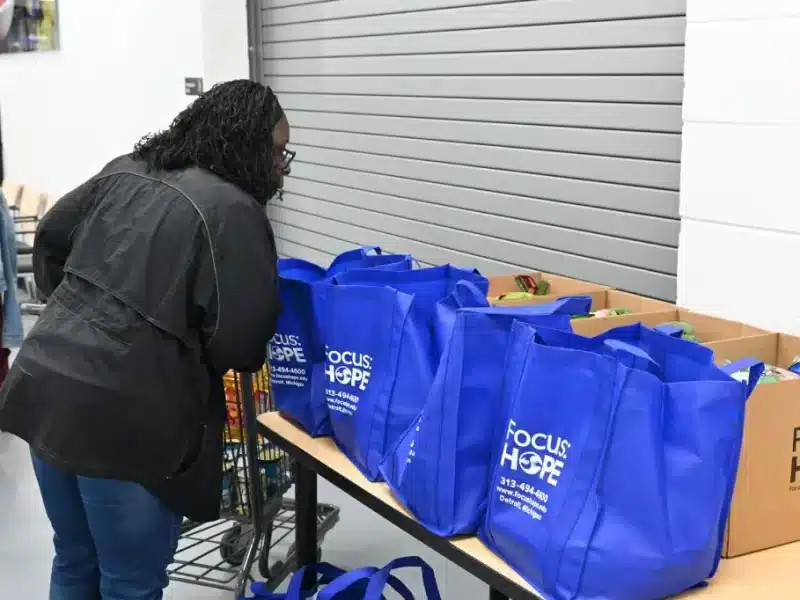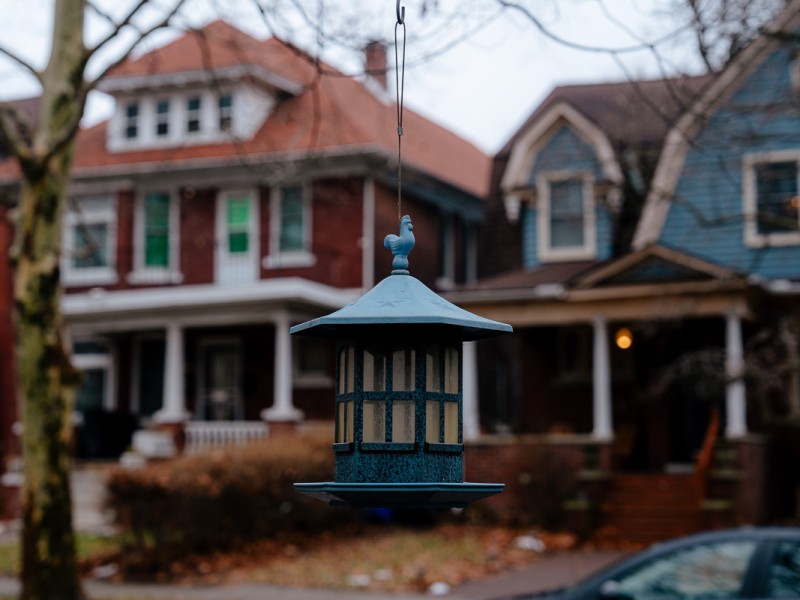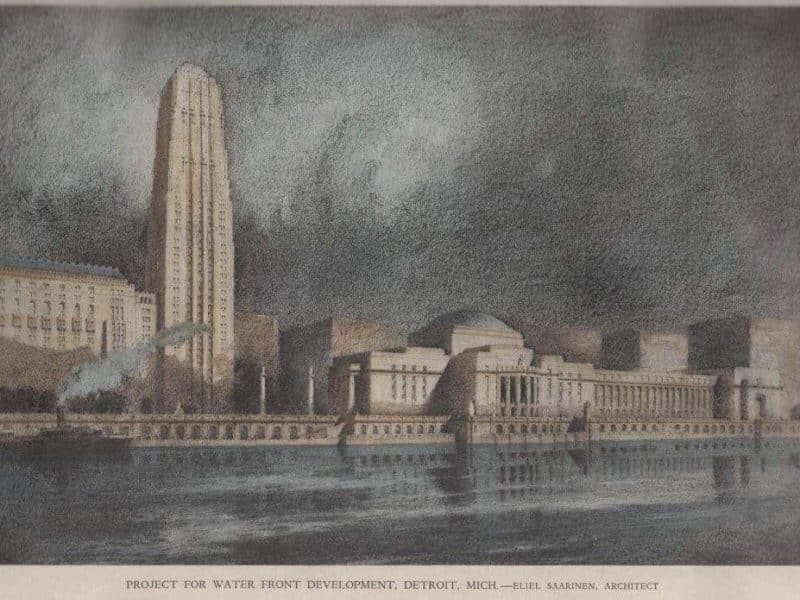On the Ground: Young and Hmong in Osborn
The Hmong people are an ethnic group that originates from the mountainous regions of China, Vietnam, Laos, and Thailand and speak the Hmong language. Matthew Lewis introduces us to three recent high school grads from the Osborn neighborhood.
In 2006, Dennis Archambault wrote a piece for Model D highlighting one of Detroit’s lesser known ethnic communities: the Hmong people who live in the Osborn neighborhood. Now that we have been on the ground in Osborn for two months, it seemed like the right time to check back in with Osborn’s Hmong community. Frank McGhee of NSO’s Youth Initiatives Project, whom we featured earlier in the series, put us in touch with three promising Hmong students who recently graduated from Osborn High School’s Evergreen Academy.
Brother and sister Lue,19, and Allysen, 18, and Merly Chang, 18, all graduated from Osborn’s Evergreen Academy in the spring and are getting ready to head off to college (Macomb Community College, Marygrove College, and Eastern Michigan University respectively).
“I really liked Osborn Evergreen,” says Merly, “Staff members were really caring. They devote themselves 100 percent to students, regardless of who they are.”
The Hmong people are an ethnic group that originates from the mountainous regions of China, Vietnam, Laos, and Thailand and speak the Hmong language. During the 1970s, political unrest in their native region resulted in the first wave of Hmong refugees emigrating to America. The parents of Lue and Allysen Vang and Merly Chang, however, were part of a second major emigration of Hmong people to the United States that occurred in late 1980s and early 1990s.
“My parents came to the US in 1988 from Thailand. They originally settled in Rhode Island, but came to Detroit shortly afterward because my uncle had moved here,” says Merly Chang. The Vang family came the the U.S. a little later in 1992, moving to California before eventually settling in Detroit.
In recent years, the Hmong population in Osborn has declined as members of that community began moving north into Warren and Sterling Heights, but a small but strong group remains in Northeast Detroit. There are somewhere between 20 and 30 Hmong students who still attend Osborn High.
These kids are engaged, socially conscious residents, thanks in part to their participation in the DAY Project (Detroit Asian Youth) and NSO YIP.
“Working with NSO was pretty fun. We did peer education about reducing gun violence and substance abuse. We passed out gun locks throughout the community. We even held a protest after the killing of Trayvon Martin. His death was a lot like what happened to Vincent Chin. He was killed because he was different,” says Lue, showing a surprisingly nuanced understanding of intolerance for a young man of nineteen.
Lue, Allysen, and Merly learned about Vincent Chin, a Chinese American who was beaten to death in 1982 in Ferndale essentially because he was Asian, during their involvement with the DAY project over their time in high school.
The DAY Project and NSO YIP helped transform these young people into the well spoken, committed people they are today. Allysen Vang comments, “I was shy before I started with the DAY Project and NSO. I became more open minded, learned more about civic engagement, and made new friends.” Her brother Lue echoes these sentiments. “I feel very blessed to have been in these programs. Before, I was less engaged and quiet. They really helped me grow up.”
These three young people did much to facilitate intercultural dialogue during their tenure as Osborn High students. The Osborn community is largely African American. In 2010, African Americans accounted for 91.3 percent of the neighborhood’s population, whereas Asians made up a very small minority of 2.1 percent (Source: Data Driven Detroit).
In previous years, the Hmong community was viewed as insular and often misunderstood by the majority population in Osborn. Part of this has to do with language. The Vang siblings and Merly Chang face challenges not uncommon to the children of immigrants. Their parents don’t speak English well and they often have to translate for them.
In recent years, however, the Hmong students at Osborn High began performing a multi-culture show that teaches the other students about who the Hmong people are. Lue, Allysen, and Merly all participated in the show over there time as students at Evergreen Academy.
“There’s not a lot of diversity in Detroit,” says Merly Chang. “Because of the multi-culture show, I’ve seen an increase in understanding. We used to get called Chinese or Japanese. Now I hear people call us Hmong. I feel proud.”
Despite making the transition to being college students, Lue, Allysen, and Merly plan on staying engaged in their home neighborhood. Lue and Allysen will continue to live in Osborn while commuting to college, while Merly is moving to Ypsilanti to live on campus at Eastern Michigan. She plans to visit home often and check-in with her old teachers and friends at Osborn High. All three plan on staying in contact with younger Hmong students in Osborn and helping with the multi-culture show.
“Detroit can be a good place to live if we help change it,” says Lue Vang.
Matthew Lewis is project editor for the On the Ground series.
